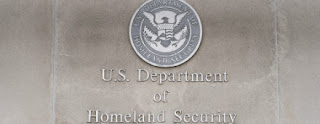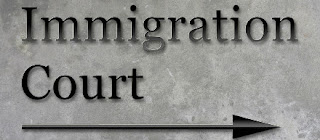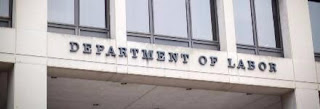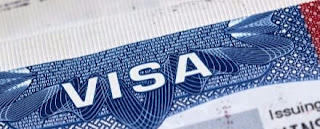OVERVIEW OF THE LEGISLATION
The proposed legislation would modify 29 U.S.C. 207.
Under certain circumstances, an employee would be able to receive compensatory time off in lieu of the overtime monetary compensation that is currently mandatory. This compensatory time off would be afforded “at a rate not less than one and one-half hours for each hour of employment for which overtime compensation is required…”
Employers would only be able to offer the alternative of compensatory time off under the provision if it is in accord with the provisions of any collective bargaining agreement in effect between the employer and the relevant labor organization (where applicable). If there is no applicable collective bargaining agreement, an agreement for compensatory time off would have to be reached between the employer and the employee before the performance of the work and this agreement would then have to have been affirmed by a “written or otherwise verifiable record maintained in accordance with section 11(c).” Crucially, the written agreement would have to establish that the employer offered and the employee chose to receive compensatory time in lieu of monetary overtime compensation, and that the employee entered into the agreement knowingly and voluntarily … and not as a condition of employment. In short, the legislation would prohibit employers from requiring employees to opt for compensatory time in lieu of overtime monetary compensation.
Not every employee would be eligible for the choice provided under the legislation. An eligible employee would have to have accrued “at least 1,000 hours of work for the … employer during a period of continuous employment with the employer in the 12-month period before the date of the agreement or receipt of compensatory time off.”
The legislation would also place additional limitations and stipulations on compensatory time accrued in accord with the new 29 U.S.C. 207. First, an employee would not be able to accrue more than 160 hours of compensatory time under the rule. Second, no later than January 31 of each year, employers would be required to provide monetary compensation for any compensatory time accrued under the rule that was unused prior to December 31 of the preceding year. Alternatively, an employer would be permitted to designate and communicate in advance to its employees a 12-month period other than the calendar year (the same rules would apply).
Interestingly, although the rule allows for employees to accrue up to 160 hours of compensatory time, employers would be permitted, with at least 30 days notice, to provide monetary compensation for an employee's unused compensatory time in excess of 80 hours.
An employer would have to pay a terminated employee for any unused compensatory time the employee had accrued at the time of the termination.
When paying an employee for unused compensatory time, the employer would be required to pay the higher of either the regular rate earned by the employee when the compensatory time was accrued or the regular rate at the time the employee received payment of the compensation. Such payments would be considered unpaid overtime compensation.
The proposed legislation allows an employer to withdraw from a compensatory time agreement upon giving 30 days advance notice to employees, unless an applicable collective bargaining agreement specifically stipulated otherwise.
Employees would be permitted to withdraw from compensatory time agreements at any time. Significantly, an employee would also be permitted to, at any time, request monetary compensation for all unused compensatory time. Employers would be required to make such payment within 30 days of the request.
The proposed legislation would explicitly prohibit employers that provide compensatory time from “directly or indirectly” intimidating, threatening, coercing, or attempting to intimidate, threaten, or coerce any employee into opting for compensatory time or using compensatory time already accrued.
The proposed legislation addressed the employee's right to use and the employer's corresponding power to limit the use of accrued compensatory time. An employee would be entitled to use compensatory time already accrued “within a reasonable period after making [a] request if the use of compensatory time does not unduly disrupt the operations of the employer.” This would mean that an employee would not necessarily be able to use accrued compensatory time at any time, but rather only within a “reasonable period” after making a request and only if it would not “unduly disrupt the operations of the employer.” It is important to note, however, that the employer would be liable for the monetary compensation of any unused compensatory time either within 30 days of request by the employee or no later than January 30 of the next calendar year.
An employer that violates the rules prohibiting intimidation would “be liable to the employee affected in the amount of the rate of compensation for each hour of compensatory time accrued by the employee and in an additional amount as liquidated damages reduced by the amount of such rate of compensation for each hour of compensatory time used by such employee.”
FUTURE OF THE LEGISLATION
Upon the passage of the House bill, the White House released a statement supporting the legislation [
link]. The White House Statement took the position that the legislation “would help American workers balance the competing demands of family and work by giving them flexibility to earn paid time off.” The White House also noted that it would “extend to private-sector workers a choice that public-sector employees have long enjoyed.” The White House addressed concerns that the legislation would allow employers to coerce employees into taking compensatory time in lieu of overtime monetary compensation by noting the protections included in the legislation. For these reasons, the White House stated that if the legislation were to reach President Trump's desk in its current form, “his advisors would recommend that he sign the bill into law.”
Nevertheless, despite House passage and support from the Trump Administration, the legislation faces an uncertain future. House Democrats were nearly uniformly opposed due in large part to concerns that the legislation would shift the power balance between employers and employees too far in the direction of employers. If Senate Democrats are similarly opposed, the legislation may face a 60-vote hurdle in the upper chamber. Josh Eidelson of Bloomberg Politics noted that similar legislation passed the House as recently as 2013 only to stall out in the Senate.[1] It appears that the legislation will once again have very uncertain prospects if the Republicans take it up in earnest.
For my part, I consider the legislation to be well crafted in extending to private-sector employees the flexibility to choose how they are compensated for their work that many public-sector employees already enjoy. The legislation is worthy of consideration by the Senate, and its detractors should offer amendments for strengthening employee protections in the proposal if that is their concern.
Please visit the
nyc immigration lawyers website for further information. The Law Offices of Grinberg & Segal, PLLC focuses vast segment of its practice on immigration law. This steadfast dedication has resulted in thousands of immigrants throughout the United States.
- Eidelson, Josh. “Republicans Try Again to Let Bosses Offer Comp for Overtime.” Bloomberg.com. May 2, 2017.












